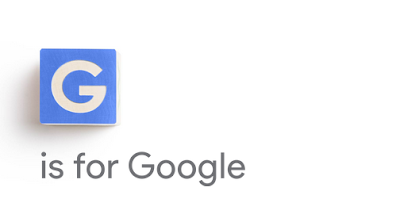Tech Roundup: Alphabet, iPhone 6s & More
[A recurring feature on the latest in Science & Technology.]
Google is now a cog in the grander scheme of things, the Alphabet:
As part of the shakeup, the Google we know (i.e. search, Android, ads, Chrome, YouTube, Google Play and Maps) will become the biggest subsidiary under the umbrella company Alphabet with Android chief Sundar Pichai as its CEO, while other unrelated businesses like X lab (comprising of Project Wing, its drone delivery project, Project Loon and self-driving cars), Calico (a biotechnology cum R&D wing focused on combating aging and age-related diseases), Life Sciences (Google Contact Lens), Fiber and its inchoate sibling Project Fi, Nest, Boston Dynamics, and its investment arms, Ventures and Capital, will be the new alphabets to join its ranks.
Google is now a cog in the grander scheme of things, the Alphabet:
Google may have been just about search at one point, but given its ever-expanding Googleverse, it seems a little out of touch, far too restrictive a place to contain all its scattershot projects. And the web giant seems to have finally realised this too, if the surprise corporate reorg is any indication. Emphasising on focus and expansion as the driving mantra, CEO Larry Page announced the move on Monday, stating "our company is operating well today, but we think we can make it cleaner and more accountable. So we are creating a new company, called Alphabet. I am really excited to be running Alphabet as CEO with help from my capable partner, Sergey (Brin), as President."
 |
| Google is now a mere Alphabet! |
In short, Google has become to Alphabet what iPhone is to Apple! In a way it makes perfect sense as well. Founded as a search engine back in the late 90's, Google's core business now pales in comparison to its escalating futuristic efforts to bring technology into our lives. And they have no connection to the 'conventional' Google whatsoever. By not force-fitting (or limiting) such ambitious undertakings to the tag 'Google' and by giving them the quasi-independence they need to function, the corporate rebranding has all the makings of a shrewd, calculated move towards technological dominance.
In other news:
- Researchers at Purdue University discover a sixth new taste called oleogustus (after sweet, sour, bitter, salty and umami); described as a taste for fat.
- North Korea establishes a new time zone 'Pyongyang Time'; turns its clock back by 30 minutes (GMT+8:30) effective August 15.
- Scotland to formally ban farmers from growing genetically modified crops.
- Debris found washed up on the shore of Maldives to be investigated if it's from Flight MH370 as search efforts intensify once again.
- Twitter rolls out trending news tab in its mobile apps ahead of Project Lightning launch.
- Google finally rolls out Material Design update for Hangouts on Android.
- YouTube gets 360-degree ads; videos to no longer freeze at 301+ views, and video player on the web updated with transparent overlay.
- Microsoft Windows 10-powered Xbox One dashboard set to arrive on consoles in November; open sources tool that lets developers port iOS apps to Windows.
- Apple to unveil new iPhones with Force Touch capabilities come September 9, reports Buzzfeed.
- Popular music streaming service Spotify said to be planning a premium-only tier as it prepares to take on Apple Music; "certain releases will only be available to paying Spotify subscribers, or offered for an extremely limited time to non-paying users", according to Digital Music News.
- European anti-trust watchdog fails to find any evidence of collusion between Apple and music record labels to halt free streaming tiers, reports Recode; to continue investigations into Apple's policies pertaining to 30% cut on all App Store transactions (which effectively means rivals will have to either absorb that loss or charge more).
- Google, Samsung and LG pledge to provide monthly security updates in the wake of Stagefright vulnerability; HTC comes under fire after security firm FireEye reveals fingerprint scanner-equipped One Max phone stored fingerprints in a plaintext, world-readable bitmap image file, letting any unprivileged process or app to steal the fingerprint (the flaw has now been fixed).
- Nokia sells Here maps to a consortium of German car manufacturers Audi, BMW and Mercedes for $3 billion.
- App developer OpenSignal releases its yearly Android fragmentation report; sees 24,083 distinct Android devices as opposed to 18,796 in 2014.
- Facebook secures a patent that lets lenders approve loans based on a user's social connections (and their credit worthiness).

Comments
Post a Comment